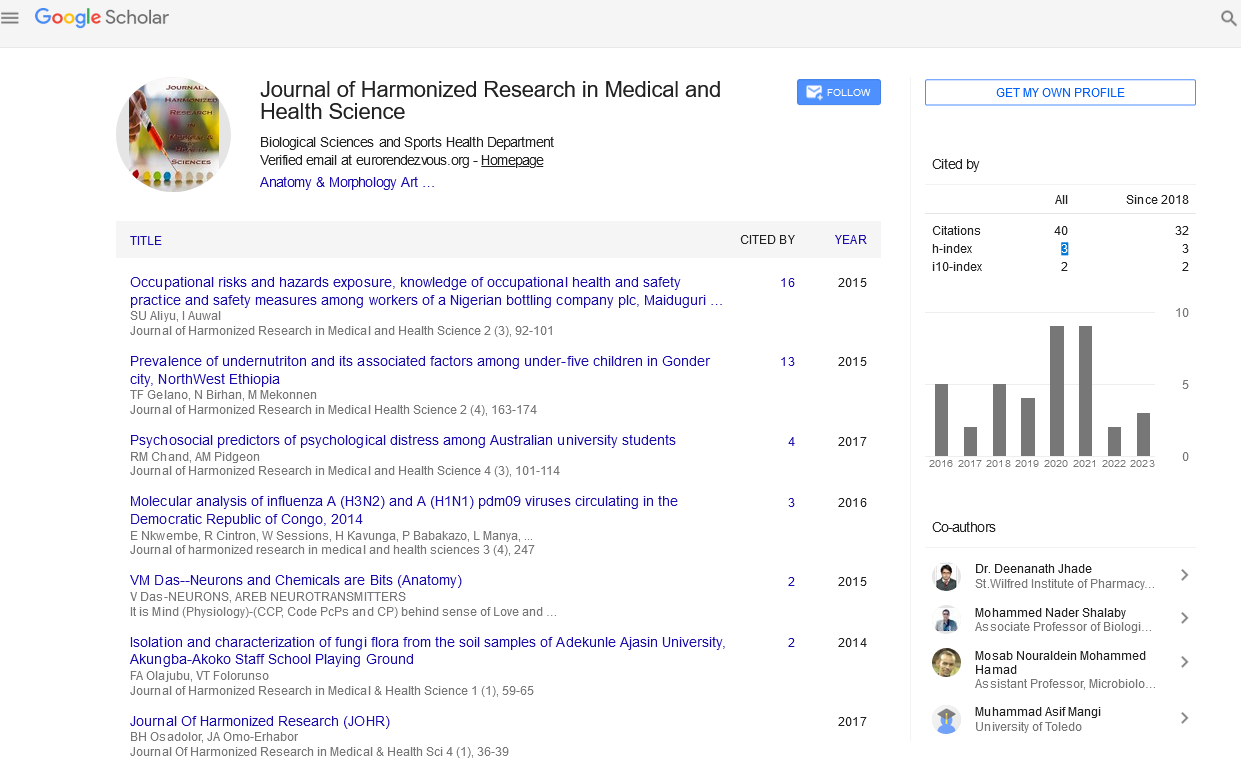ASSESSMENT OF KNOWLEDGE AND ATTITUDE OF HEALTHCARE PROVIDERS TOWARDS POSTOPERATIVE INFECTIONS OF PATIENTS ADMITTED TO SURGICAL WARD AT PUBLIC HOSPITALS IN MEKELLE TOWN, TIGRAY, ETHIOPIA, A CROSS SECTIONAL STUDY
Abstract
Author(s): Zaid Tadesse Gebrezgabher, Bajeh Ojochide Lydia, Gerezgiher Buruh Abera, Derbachew Hailemariam, Berhe Desalegn.
Background: Postoperative infections contribute to morbidity and mortality of surgical patients, increased healthcare costs and longer hospital stays. Globally, standard precautions of infection cont rol are considered an effective means of protecting healthcare workers, patients and the public and reducing nosocomial infections.The objectives of this study were to assess the knowledge and the attitude of healthcare providers towards post-operative infections of Patients Admitted to Surgical Ward at Public Hospitals in Mekelle Town, Tigray, Ethiopia. An institution based cross-sectional study was conducted and data were collected through the administration of structured questionnaire on 114 health care providers selected by simple random sampling technique. Data were collected for five days. Data was gathered by trained health care providers whom were selected by their data collection experience. Two supervisors were selected to check the data during collection. After data was collected on participants’ knowledge and attitude through the administered questionnaire, each participant’s response was graded out of hundred, then the result was grouped accordingly and analysed by SPSS. Result: Out of a total of 114 respondents, 75(65.8%) were male. Fifty-five (48%) of health care providers were in the age group of 26-35. Sixty (52.6%) were married. Concerning the work experience of health care providers 74 (65%) were degree holders. Fifty three (46.4%) had moderate knowledge and 83.3% had a positive attitude towards postoperative infection. Conclusion and Recommendations: Although the majority of respondents had moderate knowledge and positive attitude towards postoperative infections, strengthening and integrating universal precaution with the routine services through provision of training and preparing and introducing healthcare workers to infection prevention standard of practice, protocol, rules, regulation and opportunities to promote the desired team spirit at all health facility levels are recommended.










